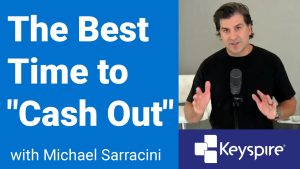Owning property or land directly is not normally considered a qualified investment for RSPs (Registered Savings Plans), so generally investors cannot use RSPs to invest in properties (i.e. for a down payment). Some exceptions and programs, such as the CRA Home Buyer’s Plan in Canada, do exist.
The more common types of Registered Real Estate Investments are:
• Eligible real estate securities (i.e. private equity and land development investments)
• Private mortgage lending
• Eligible syndicate mortgage lending
What steps do I need to take to prepare my RSPs for real estate investing?
Before using your registered funds to invest in private equity or private lending, Keyspire recommends the following steps:
1. Determine your Investor Profile including which of the 3 Investing Streams you plan to invest in. This was a blog a few weeks ago.
2. If private lending and/or private equity align with your Investor Profile, determine how much of your available capital will come from registered funds for each Investing Stream.
3. Determine if your registered funds are currently in a self-directed account, which allows direction to real estate investments. A limited number of financial institutions in Canada and the US provide self-directed accounts. Many major banks and investment providers focus RSP investing on stocks, bonds, mutual funds, and GICs; thus, they do not allow self-direction to real estate investments.
4. Once your registered funds are in a compatible self-directed account, you can take action and begin reviewing available investment opportunities.
How long will it take to transfer my RSPs to a self-directed account?
Transferring funds to a self-directed account will depend on your individual situation. The process for transferring registered funds can take approximately 2 to 6 weeks depending on your current financial institution and the amount of time it takes you to complete and submit all applicable paperwork. Speak with a private equity or private lending Service Provider to learn more.
Do I need to cash out my registered funds to invest in real estate?
No! When you invest in private lending or private equity using your registered funds, the funds remain within the registered savings account similar to the process for investing in stocks, bonds, or mutual funds.
How will I receive my investment returns including my cash flow?
When you invest using registered funds, all investment returns including any Cash Flow will return to your RSA similar to stock or bond dividends staying within your RSA. You will not receive your investment returns as cash.
If you invest using a combination of registered funds and cash, you will receive your returns proportionate to how you invested. For example, if you invest 60/40 using registered funds and cash, you will receive your return 60% back to your RSAs and 40% back to you as cash in accordance with the payouts outlined in the investment terms.
Can I invest using registered funds through a corporation?
No. Registered savings plans are personal. If you have created a corporation for investing in real estate, it is considered a separate legal entity. For more information, please consult a qualified investor-savvy accountant.
How much can I contribute to my RSAs?
It is important to know how much you are able to contribute on an annual basis to the different types of accounts available to you. This will vary from person to person based on several factors, including annual income.
An investor-savvy accountant is a crucial team member, so be sure to work with your accountant to understand your specific situation. They can help guide you in ensuring you are maximizing tax benefits by using these strategic accounts/plans.





